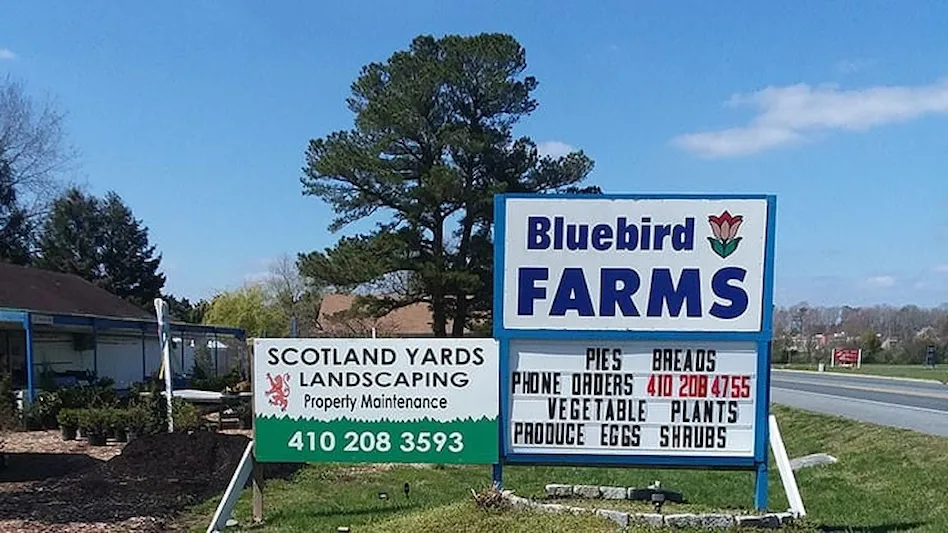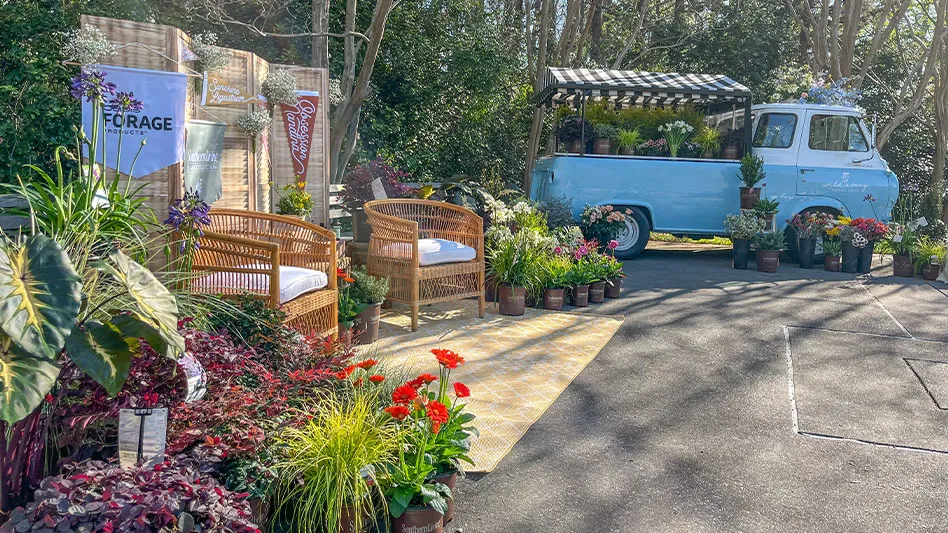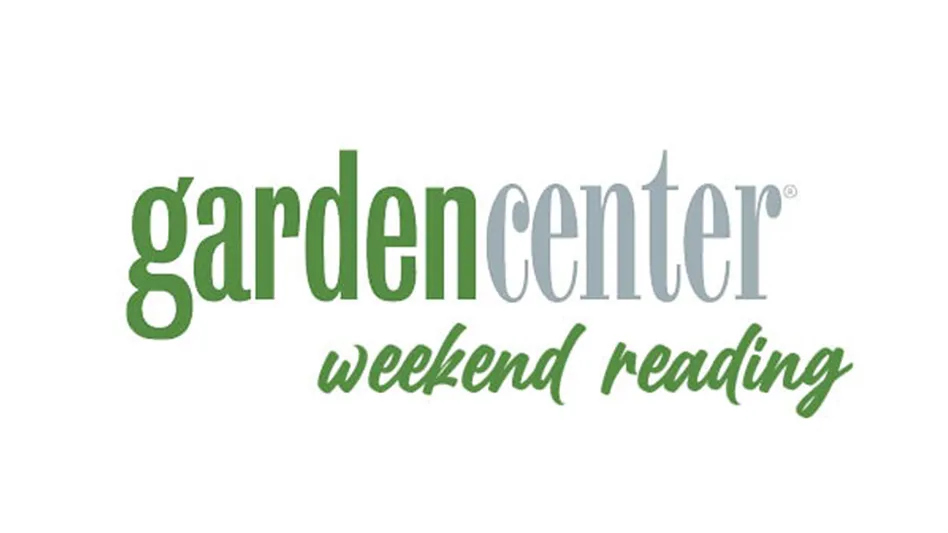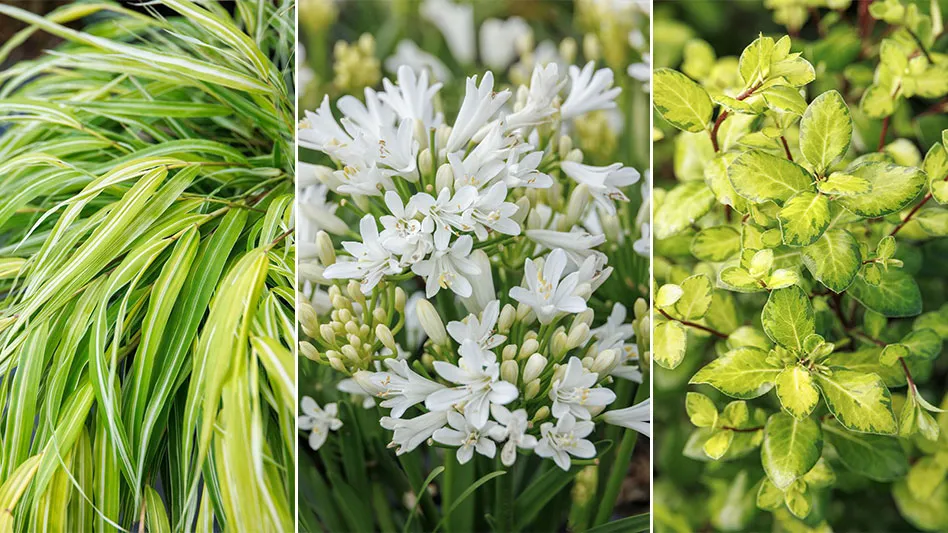
Bluebird Farms
As the coronavirus pandemic worsens, one way garden centers are dealing with the fallout is by dusting off a term from the past and encouraging customers to plant victory gardens.
The term was coined during World War I by the National War Garden Commission and promoted through propaganda posters advocating that civilians “Sow the seeds of victory” by planting their own vegetables. It returned to prominence in WWII, during which USDA estimates that more than 20 million victory gardens were planted. Fruit and vegetables harvested in these home and community plots was estimated to be 9-10 million tons.
When James H. Burdett wrote the Victory Garden Manual in 1943, the U.S. was more than a year into World War II. Food was scarce. Americans wanted to do something productive and feel self-sufficient.
Burdett founded the National Garden Bureau in 1920 and that organization’s current executive director, Diane Blazek, updated his tome for today’s gardens in a series of blog posts. The first one was about planning, the second one will be about planting, the third one will be care and maintenance and the fourth one will be about harvesting.
Blazek believes IGC customers are looking for a return to normalcy. After posting “Victory Gardens 2.0: 10 steps for planning your own,” she thinks the messaging is a good fit for today’s times.
“Based on the reaction we got, yes, it definitely is striking a chord,” she says. “It’s the one thing you have control over. I can control my garden. I can grow my own produce. I can feed my family. That feeling of empowerment is a big part of it.”
Read the entire first post here. IGCs are encouraged to use the post, either in its entirety or bit-by-bit, and accompanying social media graphics to communicate with their customers.
IGCs like Georgia’s Pike Nurseries are using the term in their messaging, as well.
Pike Nurseries has 17 retail locations, 15 in the metro Atlanta, Georgia area and two in the Charlotte, North Carolina area. The company is part of Armstrong Gardens Centers, which is headquartered in California. Although their businesses are allowed to be open in each state, the company decided to close in-store shopping and implement its own online or phone order and delivery or curbside pickup model. Pike's post-coronavirus marketing includes their own tips for planting modern-day victory gardens.
“Any time the country goes through a difficult time, you see people spending more time at home and watching their pennies a little closer,” Vice President of Marketing Desiree Heimann says. “So it makes sense that you’d start planting your own victory gardens. We started encouraging that and the sales went along with it.”
Not that sales are booming, but Pike has definitely seen a percentage of sales moving toward edibles. Whether it’s veggies, herbs or berries, people are grasping onto that message.
Victory gardens allow quarantined, stir-crazy people to get out in their yard and experience the mental health benefits of gardening.
“We’re being told to isolate and distance, and that’s not what humans do,” she says. “If we can encourage people to go outside and plant their Victory Garden, yes, they’ll have their fruits and veggies that they love to grow, but it’s also a form of therapy. And they can do that safely in their backyard.”
Nancie Corbett, owner of Bluebird Farms, a small IGC in Berlin, Maryland, opened March 23 after a two-month winter break. She’s stayed open for business staffed only with a skeleton crew practicing social distancing. She closed the retail area and has been receiving orders by phone for “porch pickup.”
Corbett has partnered with nearby Windmill Creek Vineyard and Winery on a victory garden project. The winery donated land for 60 garden plots, for which she would sell plants at a 20% discount.
“We're trying to just keep plants moving and people buying,” she says.
On March 25, the winery hosted a Facebook Live virtual event introducing the victory garden concept. Corbett explained to interested participants how to plan, plant and maintain a victory garden. There were plenty of questions about how to start a garden, what types of plants to use, how to do it organically and more. Now, the winery has a waiting list for the plots. Corbett sees the reason people love the concept.
“It gives people hope,” she says. “They can envision their garden in August and right now each day we're just trying to get through until the evening when we go to bed.”
Latest from Garden Center
- The Family Business, Part 2: Agreeing (and disagreeing) on Capital Investments
- Registration opens for Darwin Perennials Day
- Weekend Reading 5/3/24
- Weekend Reading 4/26/24
- Smith Gardens assumes operations of Skagit Horticulture
- Beneficial insect sachets now included with Monrovia mandevilla
- Pennsylvania Horticultural Society shares top gardening trends from 2024 Philadelphia Flower Show
- Garden Media Group announces the fifth annual Women in Horticulture Week





